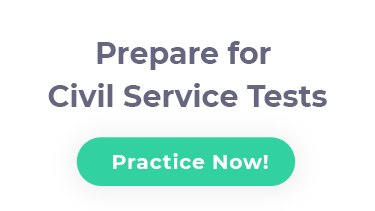FSA Assessments Online Preparation [2025]

What Are the FSA Assessments?
Florida Statewide Assessments, or FSA Assessments, are given to students in the state of Florida to measure their progress in school and how much they have learned. Students may take several different exams depending on their grade level, the subjects they are learning, and their ability level.
Florida Assessment of Student Thinking (FAST)
The FAST exams are FSA assessments for students starting in VPK (voluntary pre-kindergarten) to test their reading/language arts and mathematics skills. The tests are aligned with the Benchmarks for Excellent Student Thinking (BEST) standards and are administered three times per year: within the first 30 days of school, in the middle of the school year, and at the end of the school year.
The tests students take each year are tailored to their grade level with the following guidelines:
Writing Assessments
In the Spring semester, students in grades 4 – 10 are also given a writing test as part of their FSA assessments. This exam will also be tailored to the BEST standards, and the score will be separate from the Reading/Language Arts score that students receive during the FAST exams. Each student will need to understand the mechanics of writing an argumentative piece and an expository essay, and there will be separate grading rubrics for students in grades 4 – 6 and 7 – 10.
End-Of-Course (EOC) Assessments
For older middle and high school students, end-of-course (EOC) tests are given as part of the FSA assessments. These are tailored to specific courses they would have taken that year and are only offered to students in that particular class. Some of the BEST EOC assessments include:
- Algebra I
- Geometry
- Biology I
- Civics
- S. History
For each test, students will have 160 minutes to answer roughly 60 questions.
Statewide Science Assessment
Grades 5 and 8 students will also take a statewide science FSA assessment. This test is tailored to the Next Generation Sunshine State Standards (NGSSS) and will include questions in the following categories:
- Earth and Space Science
- Nature of Science
- Physical Science
- Life Science
There will be between 60 and 66 questions on this test, and students will have 160 minutes to complete it.
Florida Civic Literacy Exam (FCLE)
The Florida Civic Literacy Exam (FCLE) is an FSA assessment for students completing a U.S. Government course. The test will measure the student’s civic literacy knowledge, such as:
- Understanding the U.S. Constitution and its application
- Understanding the basic principles of American democracy and how those practices are applied in the U.S. republican form of government
- Understanding landmark supreme court cases, legislation, executive actions, and their impact on law and society as a whole
- Knowledge of the U.S. founding documents and how they have impacted our institutions of self-government
Florida Standards Alternate Assessments (FSAA)
In addition to the traditional FSA assessments, there are also Florida Standards Alternate Assessments (FSAA) for students in situations where it would not be appropriate to take the FSA assessment, even with accommodations. This exam is typically only given to students with significant cognitive disabilities eligible under the Individuals with Disabilities Education Act.
This exam is based on the Florida Standards Access Points for mathematics and English and the NGS Access Points for social studies and science. While they represent the intent of the standards at the appropriate grade level, there are reduced levels of complexity on these exams to make them more accessible.
There are two components to this program:
- Performance Task: This program assesses students on three levels of complexity and categorizes results based on achievement levels.
- Datafolio: This program is designed to assess the small populations of students who have no formal mode of communication or may be working at a pre-academic level.
National Assessment Of Educational Progress (NAEP)
The National Assessment of Educational Progress (NAEP) allows Florida to benchmark their students’ performance against students of the same age and grade level in other states. These tests are given to students in grades 4, 8, and 12 and will include some or all of the following subjects:
- Reading
- Math
- Science
- Arts
- Writing
- Economics
- Civics
- Geography
- Technology and Engineering Literacy
- S. History
In addition to the national assessment, Florida students complete international assessments that allow their ability levels to be compared to children in other countries. Specifically, they may take the following exams:
- International Computer and Information Literacy Study (ICILS)
- Program for International Student Assessment (PISA)
- Trends in International Mathematics and Science Study (TIMSS)
- Progress in International Reading Literacy Study (PIRLS)
ACCESS for ELLs
The ACCESS for English Language Learners (ELLs) is an FSA assessment that measures proficiency in the English language. The exam is a paper-based assessment given to students in grades 1 – 12 and includes a speaking section given one-on-one with a teacher and reading, listening, and writing sections in a group setting.
There is a kindergarten version of the exam where all sections are given one-on-one with a teacher. Additionally, there is an alternate ELLs exam for students with significant cognitive disabilities.
How to Prepare for the FSA Assessments?
Because the FSA assessments examine the student’s academic progress and educational level, they must prepare for the various exams ahead of time. The best way to prepare for the FSA assessments is to use the online resources provided by the Florida Department of Education and work through several practice tests of the material.
The Florida Department of Education has a lot of information on its website that is helpful for both students and parents, including the topics on the exam, the organizational structure of each test, and what the student can expect on test day.
Practice tests are also excellent study tools because they provide sample questions similar to what the student can expect on the exam. Additionally, all FSA assessments are timed, so practice tests will help students rehearse their timing and better understand what to expect on the exam.
Students who prepare for the FSA assessments do better than their peers who do not prepare. Therefore, it is essential to the student’s success to prepare for the exams and ensure a good score.

